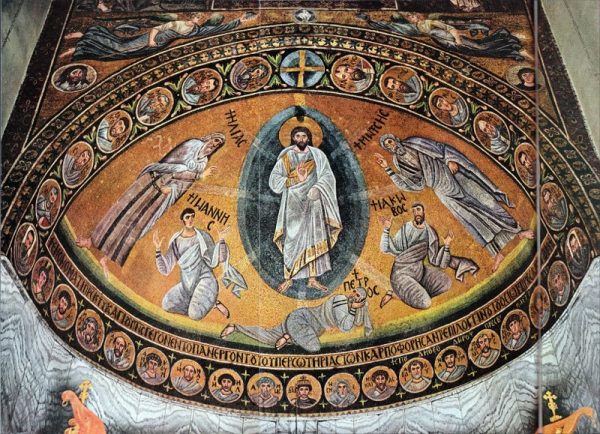A major problem between the social justice movement and Christianity can be found in early Critical Theory.
Max Horkheimer (head of the Frankfort School in the 1930’s and pioneering figure of Critical Theory) found in German idealism an “inherently bourgeois philosophy,” containing elements that posed serious threats to the progress of social justice. For Horkheimer, idealism thrives on what he called “transfiguration” thinking. In a nutshell, the category of transfiguration worked as a catchall for any notion of justice that requires a supernatural sphere for ultimate justice to work itself out.
Critical Theory scholar, Fred Rush, writes: “transfiguration severely compromises the potential for social justice, since transfiguring theories allow that the ultimate relief from suffering is achieved only outside contexts in which human action can be effective. False optimism in a ‘world beyond,’ in which reward and rectification is possible, promotes tolerance of suffering and quietism concerning human redress for injustice and deprivation.”
Here one gets a good sense for the sort of thinking that leads many SJWs to demand both behavioral compliance and thought compliance. If someone harbors a “false optimism in a world beyond” then he is guilty of promoting tolerance for suffering, injustice, and deprivation. According to this mentality it is a straight shot of deduction that Christianity possesses perhaps the greatest treasury of this “false optimism.”
Just take a few obvious examples: Christ taught us to “turn the other cheek,” to give a double portion to the one who would steal from us, to pray for those who wrong us, to let God be the avenger. This is not a religion compatible with this particular canon of social justice.
Of course, intolerance for transfiguration theories was not a 1930’s invention. Before Horkheimer, Karl Marx had a similar complaint, and before him the radicals of the French Revolution. All three are exemplars of the type of anti-religious thought which has trickled down to social justice doctrine of today.
What many SJWs are either unaware of or simply do not like to contemplate is that standing for equality and justice are quintessentially Christian ideas (notions such as, all people are equal before God, and, God shows no partiality, were unheard of in the ancient world prior to Christianity). However, the idea that suffering and injustice can be eliminated from the world is patently ridiculous. To rid the world of injustice is to rid the world of people.
The reality of fallen humanity, the reality of sin in the world, the reality that each person at birth begins their process of moral development from scratch are foundational truths of the great Judeo-Christian tradition. Any ideology wanting to right humanity’s wrongs which does not take seriously the fall of humanity is left with a situation in which even the wins produce ever more complex and profound problems.
What the social justice movement is attempting to fight without realizing it is the existence of evil (they seem to think they are fighting mere socially constructed biases that can be eliminated through reeducation, or violence if needed). An earnest desire to tackle the issue of evil—not merely human failing, but evil—in a world believed to be essentially good requires a theodicy. But the SJW is not interested in theodicy; he wants revolution; he wants justice right now. He recognizes that the world is essentially good and worth fighting for, but without trust in a good God he is left to his own resources to recreate the foggy idea of paradise left over, no doubt, from that primordial Eden imprinted on his soul. Without fail he turns himself into a little god attempting to meet out justice according to his deeply-felt, auto-generated, moral superiority. What else does he have?
(A psychology forced to reconcile irreconcilable injustices is a psychology doomed to the worst of states: depression, nihilism, anxiety, rage, etc. Without trust in a higher order and a higher justice, there are few fitting sublimations—revenge being top of the list.)
It is interesting that the very way forward is contained in the very word Horkheimer uses to try and discredit it—that is, Christ. Christ presents the truest form of justice in that He redeemed humanity to God. There is no greater justice, and in fact, God’s love transcends justice in bringing us to God (none of us actually deserve redemption). The transfiguration is the very demonstration of this, that this world and the next are intimately connected, and that the dream of perfection sought in this life is fulfilled in heaven.
It is also interesting that Horkheimer would choose the word “transfiguration” to begin with. Of all possible words to express his concept, he chooses this one. Was it an intentional attempt to make ugly such a beautiful word, to criminalize such an innocent word, to make foolish such a profound word? I believe it was. Another goal of the Frankfort School was to “desacralize” the world, and this seems to me an obvious attempt to desacralize Christ. But that is for another article.

















